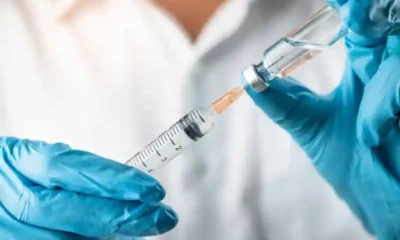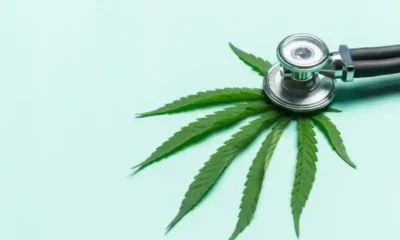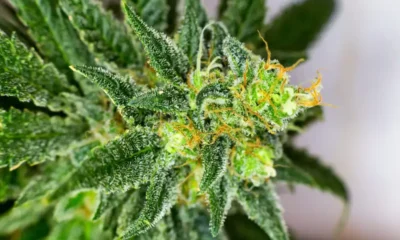Connect with us
Published
11 months agoon
By
Tyler Shultz
With her private doctor set to retire, Teegan Appleby’s family is concerned with how they will continue receiving the cannabis oil they fought for to treat their child’s severe epilepsy.
Prior to being prescribed Epidolex, a licensed cannabis-based medicine, Teegan Appleby would suffer up to 300 seizures per day. After their doctor announced their retirement Appleby said they were advised to contact another doctor whose schedule was full and with no other doctor they knew of that would prescribe the cannabis-based medicines, Appleby said that she will be “pushing, fighting, just trying to raise awareness as to how serious this is” and again call for the National Health Services (NHS) to start prescribing cannabis-based medicines. The family currently spends £2,000 a month on private cannabis medicine treatment.
The family of Murray Gray, a Scottish bot who suffers from Doose Syndrome and was treated with cannabis-based oils, had the same issue with the prescription for their child when their specialist neurologist retired. Medical cannabis medicines have been allowed since 2018 and there have been around 1,000 patients annually receiving prescriptions through the NHS and around 20,000 patients receiving treatment privately. According to a November 2022 poll, there are an estimated 1.8 million people in the U.K. with diagnosed medical conditions who use cannabis that has been obtained through illicit measures to manage their illness, up from 400,000 in 2019.
Protect Our Patients, a new campaign led by the Cannabis Industry Council (CIC), the Medical Cannabis Clinicians Society (MCCS), Volteface, and Maple Tree Consultants, is calling for GPs to have the same rights as consultants when it comes to prescribing medical cannabis in the U.K. Under U.K. law a prescription for medical cannabis can only be initiated by a specialist consultant registered in the General Medical Council. Under the shared-care agreement, GPs can only support prescribing.
“The current model for medical cannabis where only consultants can prescribe is simply not working in the interests of the majority of patients,” said Professor Mike Barnes, founder of both the MCCS and CIC. “We are calling for a meaningful, yet uncontroversial change for GPs to be allowed to prescribe medical cannabis to their patients. This change can be made in a relatively straightforward manner, and we will be setting out details in due course.”
A spokesperson for the NHS said they can’t comment on individual cases but had hoped to “arrange a meeting with Teagan and her family to make sure support is in place for her locally.”
A survey of over 1,000 U.K. GPs found almost three quarters would be more open-minded to prescribing cannabis-based medicines. The Primary Care Cannabis Network survey is the first insight into U.K. GP attitudes towards medical cannabis, with over half of the respondents believing cannabis-based medicines could be a benefit to patients who have exhausted all conventional options. The PCCN said more awareness and access to education for GPs is important as nearly half of the respondents asked for clear and concise summaries of the most up-to-date research for cannabis-based medicines.
Research has been done in the U.K. that has found cannabis to be an effective treatment for a number of mental health disorders, including post-traumatic stress disorder and anxiety disorders. Researchers from the U.K. Medical Cannabis Registry reviewed the data from 162 patients who have been prescribed medical cannabis for PTSD and asked the patients to report on quality-of-life changes after one, three and six months of using cannabis. Patients reported experiencing changes to their PTSD-related symptoms as early as one month from starting cannabis-based treatment. Researchers ultimately observed significant improvements in PTSD symptoms, sleep and anxiety across the duration of the study.


New York Cannabis Control Board Approves 101 New Adult-Use Licenses


Killer Pharmacist Who Diluted Life-Saving Drugs To Be Freed From Prison


Doctors Join Call To Regulate Intoxicating Hemp Cannabinoids


Is Your Tesla Self-Driving Car Narcing You Out?


Psychedelics Offer Long-Term Improvement in Sexual Functioning, Enjoyment


March Marks New High for Cannabis Sales in Michigan
